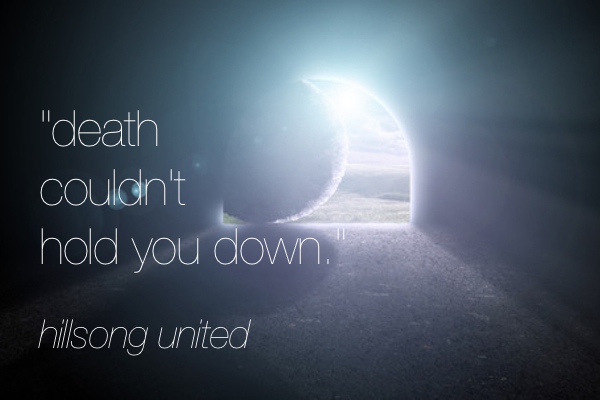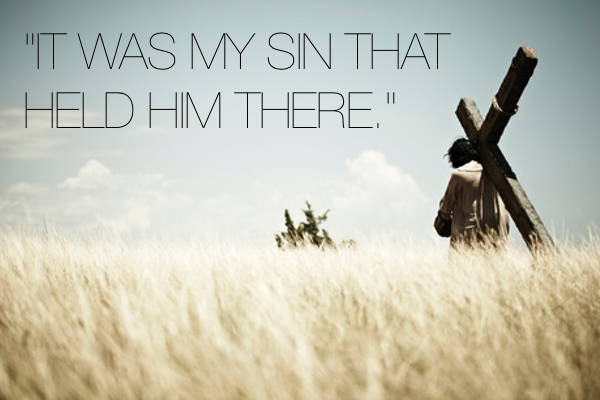Viewing entries in
Creativity
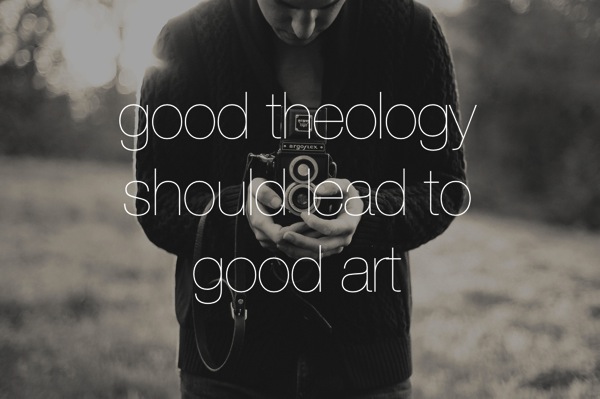 There was a day when the church was known for its artists. Da Vinci famously painted the Last Supper, Michaelangelo painted the Sistine Chapel, and J.S. Bach wrote music influenced by his Christian faith. In not quite as distant history, C.S. Lewis and J.R.R. Tolkien wrote classic works influenced by their Christian faith. Unfortunately, when we think of the church in today’s culture, we do not likely think of art. And this is not about the buildings; because although our building may no longer be painted or built the same way, our churches are still full of music, design, film, performance art, and writing.
There was a day when the church was known for its artists. Da Vinci famously painted the Last Supper, Michaelangelo painted the Sistine Chapel, and J.S. Bach wrote music influenced by his Christian faith. In not quite as distant history, C.S. Lewis and J.R.R. Tolkien wrote classic works influenced by their Christian faith. Unfortunately, when we think of the church in today’s culture, we do not likely think of art. And this is not about the buildings; because although our building may no longer be painted or built the same way, our churches are still full of music, design, film, performance art, and writing.
In the 21st century, art in the church tends to get associated with mediocre music, preachy films, or copycat designs.
This shouldn’t be. Our life-changing theology should lead to art that is not simply “Good for Christian art” but instead just “Good, period.” Christians should be making the best art, because we have the most compelling story to tell. Our theology clings to the divine story of redemption and that should inspire the best art.
The stories we tell.
Academia likes information and speaks to the mind. Art prefers a compelling story and speaks to the heart. And both of these are important. It is important that we are able to have a systematic theology and understand the complexities of our doctrine, but it is also important that our doctrines are interwined with the divine story.
A friend of mine said, “Stories are equipment for living.”
Stories help give words and life to the theology that we carry with us into everyday life. And since good theology is interested not simply in our Sunday mornings, but our Monday through Friday too, stories become deeply important. Good theology always has a story to tell.
The theologian C.F.W. Walther spoke of the doctrine of Law and Gospel as an artist when he said, "Rightly distinguishing the Law and the Gospel is the most difficult and the highest art of Christians in general and of theologians in particular. It is taught only by the Holy Spirit in the school of experience.”
This is fascinating, because Walther describes something that I’d never consider art as an art form. He somehow sees his pastoring as an art. Just as an artist decides which colors to use, which words to write, and which scenes to cut, so also the theologian has to determine which stories to tell, which words to say, and which scriptures to teach. The theologian will always be an artist because the theologian must be a story-teller.
So the question then becomes, is he a good one?
Is the theologian telling a compelling story when he re-tells the divine story? Is he showcasing this story with beautiful art? Is the preaching, writing, music, design, and film showcasing this same divine story? We are all theologians, we are all story-tellers, and the story we tell should inspire beautiful art.
And whether or not we see ourselves as artistic, our theology should absolutely inspire our desire to share the compelling story to those around us. And if we are sharing this story with those around us, we are artists. Because as artists, as we decide what to share from our own story and from the divine story, we are deciding what colors will go on the canvas and what colors will be left out in order to paint a picture of the God we know and love.
What’s your art?
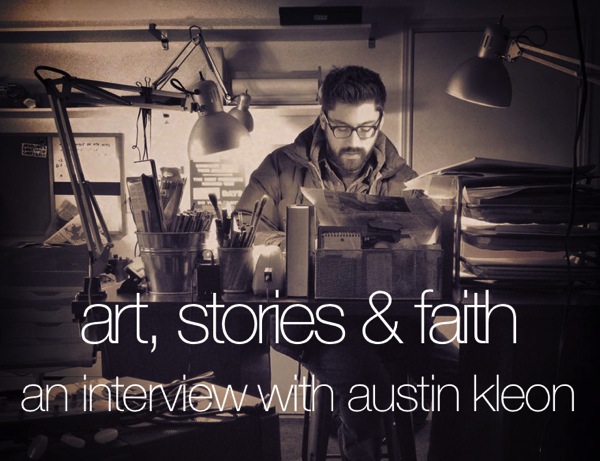 Ministry is art. Some of ministry is what we traditionally think of as art: things like music, design, writing, and preaching. And some of ministry is less often seen as art: things like counseling, getting to know a student, or mourning with a family who has lost a loved one. All of these require creativity. They require the creativity in choosing what to say and what not to say. Creativity in deciding what stories to tell, how to tell them, and when they should be told. This is art; we are telling stories. We are sharing our own stories, the stories of others, and the story of Scripture.
Ministry is art. Some of ministry is what we traditionally think of as art: things like music, design, writing, and preaching. And some of ministry is less often seen as art: things like counseling, getting to know a student, or mourning with a family who has lost a loved one. All of these require creativity. They require the creativity in choosing what to say and what not to say. Creativity in deciding what stories to tell, how to tell them, and when they should be told. This is art; we are telling stories. We are sharing our own stories, the stories of others, and the story of Scripture.
This is the work of an artist.
I recently got a chance to talk with a brilliant artist and author, Austin Kleon and ask him some questions about art and faith and how the two interact. I’ve been a huge fan of Austin’s work. As a preacher and writer, I’ve been inspired by both Steal Like An Artist and Show Your Work. Since Austin just released his new book, which has already hit the New York Times bestseller list, I thought it would be interesting to ask him some questions related to creativity and faith. Although Austin doesn’t do his art for the church, I think those of us making art in our churches can learn a lot from Austin’s insights.
[gss-content-box color="gray”] Austin Kleon is a New York Times bestselling author. He has published three illustrated books: Steal Like An Artist is a manifesto for creativity in the digital age; Newspaper Blackout is a collection of poetry made by redacting words from newspaper articles with a permanent marker; and Show Your Work! is a guide to sharing your creativity with the world.[/gss-content-box]
ME: There was a day when religious institutions, like churches, were known for their art. Artists like Bach, Michaelangelo, and Da Vinci were inspired by their faith and produced brilliant work. What do you see as the relation between faith and art?
Austin: I was watching an old Curtis Mayfield interview in which he talked about all the music in him as stemming from the church. Chris Rock has talked about hanging out with his preacher grandfather, and what an influence he was on his work. Barry Hannah has talked about the influence of The Bible on his prose. Mary Karr talks a lot about her faith.
Those are all just randomly picked from my files. I think religion still has a major influence, if not an explicit one.
The church influenced me greatly when I was growing up. I was a member of a Methodist church, a very buttoned up, bland, harmless, business-like place, with handshakes, donuts, and coffee in the parlor. But there was a wonderful choir director there, and I sang in the choir until my voice changed and I quit. The music is actually what I remember most, and I think that's where a good deal of my love for it started.
If anyone has a direct line upstairs, it's my grandmother, and my other grandmother played organ and piano in the church. My dad has recently been saved and is singing in the choir and guest ministering. My uncle is an actual minister.
So the church has always been a big part of my life — and I'm sure it in some way, even if not consciously, runs through my work. My dad keeps telling me he hopes I become a preacher some day.
ME: Churches are sharing the same basic message every single week. How do you share something that has been shared by thousands of different people and thousands of times in a way that is inspiring?
Austin: Well, Andre Gide said everything has been said before, but no one was listening, so we have to say it again. I think it's the same problem a novelist has: there are only so many plots, you know? You just have to constantly "make it new" as Ezra Pound put it.
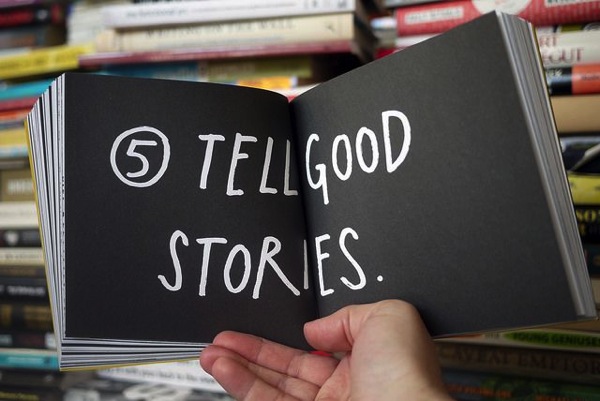
ME: In your book Show Your Work, you wrote,
“Every email you send, every text, every conversation, every blog comment, every tweet, every photo, every video - they’re all bits and pieces of a multimedia narrative you’re constructing. If you want to be more effective when sharing yourself and your work, you need to become a better storyteller.”
For people trying to figure out how to become good storytellers, what should they be reading, and watching, listening to?
Austin: They should surround themselves with good stories. They should read fairy tales, myths, and novels. They should watch great films, go see great speakers, listen when they're out in the world. My mother, for example, I never realized it until recently, but she's a really great storyteller. A natural. And somehow I never noticed until I actually became a student of storytelling. But it's very, very hard to get good at, and like everything else, takes a lot of practice. Some of the storytellers I’ve learned the most from are Carl Jung, Joseph Campbell, and Bruno Bettelheim.
ME: Churches as a whole in the United States are in decline. Do you think sharing art and telling a compelling story can help change this?
Austin: I honestly don't know. One of the most interesting books I've read on the subject recently is Alain de Botton's Religion For Atheists. de Botton's jist is that we should be able to steal or borrow many things that religion does well without subscribing to a belief in God. I think what churches could do is look at these things de Botton is pointing to, and to say, "Well, we already have these, and we do it well," and to emphasize those things.
I think this is why I'm interested in the practices of religion: the verbs. Singing, prayer, meditation, contemplation, service, etc. Personally, I am mostly turned off by the idea that faith is something that happens in the head and not with the body out in the world. I think what happens to a lot of artists is that they replace religion with art. A lot wouldn't ever admit that, but I think it's true. When I think of drawing or writing, I think of them as practices, or daily devotionals.
ME: One of your chapters in your book is called, “Shut up and listen.” The reformer Martin Luther once said regarding preachers that they should, “Stand up, speak up, and shut up.” What makes shutting up so important?
Austin: I would imagine that listening influences their art the same way that it does everyone: when you listen, you learn. You need input so you can continue your output. There was a great quote from Richard Ford, he said, when people know you're listening, they tell you things.
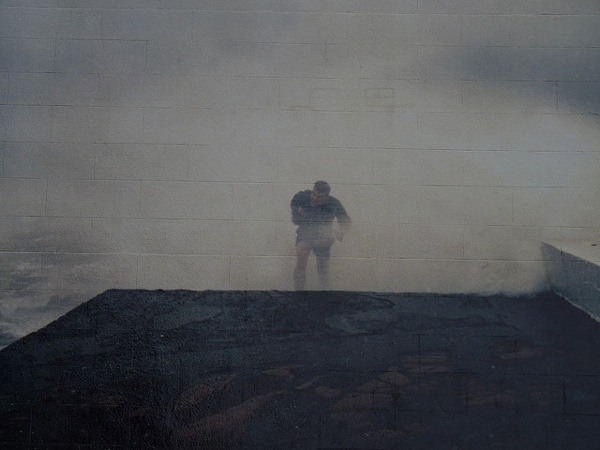 The hardest part of any project is not the beginning or the end of the project, but the middle. Whenever I start a new project, the beginning stages are filled with excitement. My whiteboard gets filled with ideas and possibilities; my conversations are filled with passion as the potential of my new idea is virtually limitless. When I finish a project, there is again great excitement as I get so see a project come to fruition; there is a sense of pride and ownership as a new creation is done. But what about the middle?
The hardest part of any project is not the beginning or the end of the project, but the middle. Whenever I start a new project, the beginning stages are filled with excitement. My whiteboard gets filled with ideas and possibilities; my conversations are filled with passion as the potential of my new idea is virtually limitless. When I finish a project, there is again great excitement as I get so see a project come to fruition; there is a sense of pride and ownership as a new creation is done. But what about the middle?
Every project will inevitably face the project plateau; that moment when the motivation and excitement quickly fade and the finish line starts to seem like it will never come. The middle of a project is the most difficult. But it is also the part of the project that separates those that succeed and those that don't. It's the part of the artistic process that separates the occasional one-hit wonder from the art legends. It's easy for us to see the allure of creativity - whether that be creating music, sermons, events, films, or something else - and completely overlook the blood, sweat, and tears that are required to make great art.
"Genius is one percent inspiration and ninety-nine percent perspiration." - Thomas Edison
The project plateau is the moment in your project when you start to hit the wall of resistance. It stops being exciting and you actually have to discipline yourself to work another two hours. It stops being endless amounts of creative ideas and instead requires you to force yourself into editing mode. The only way to survive the project plateau is to persevere through it. It sucks. But it's making it through those moments that allows you to not simply be somebody full of great ideas without ever delivering. It's making it through those moments that allows you to not simply have a decent idea, but something that you can be truly proud of.
Photo Credit: reillyandrew
[tentblogger-vimeo 24715531]
"Nobody tells this to people who are beginners, I wish someone told me. All of us who do creative work, we get into it because we have good taste. But there is this gap. For the first couple years you make stuff, it’s just not that good. It’s trying to be good, it has potential, but it’s not." - Ira Glass
HT: Echo Hub
[tentblogger-youtube -3L5SJyPpZk] Don't forget what this weekend is all about. The crucified and risen Jesus. Death doesn't win; Jesus does.
[tentblogger-vimeo 31112563] I've recently come across some of the work of Erik Wahl. He is an artist, which doesn't say much considering he makes it his goal to make sure we realize that we are all artists. More specifically he is a graffiti style artist and a speaker. The way he mixes his painting presentations as a part of his business presentations is incredible, even in the short clips that are available on his website. He also has a book coming out this summer called Unthink that I am making sure to keep on my radar. If you haven't heard of him yet, check him out.
[tentblogger-vimeo 54477408]
[tentblogger-vimeo 13399691] Over the past year I have found myself more and more interested in creativity and how being an artist influences my ministry whether it be through design, preaching, or simply the way I approach a problem. As I've explored what some people might call being a "creative" type, I've spent some time on an incredible website called 99U. If you are interested in idea generation, managing creative people, or executing ideas this website is invaluable. I recently watched this video which I loved because I so often find myself jumping from idea to idea, which Scott Belsky speaks against in this clip.
This week our creative team decided to get together and do some Christmas planning. And yes, I do realize it's July.
This video is testimony to the fact that it is not difficult for us to find devices that can record high quality video in our ministries.
Creativity can be a difficult task when done individually, but when done as a group this difficult task can become even more difficult.
Over the past several months I have worked hard to discipline myself to develop 4 specific habits to improve my writing skills.
Creativity is hard work. There are days when writing does not come from a flow of great thoughts, but instead comes from the discipline of putting words on paper each day. If you want to learn how to be creative, you need to practice being creative. It may not be complicated, but it is difficult.

